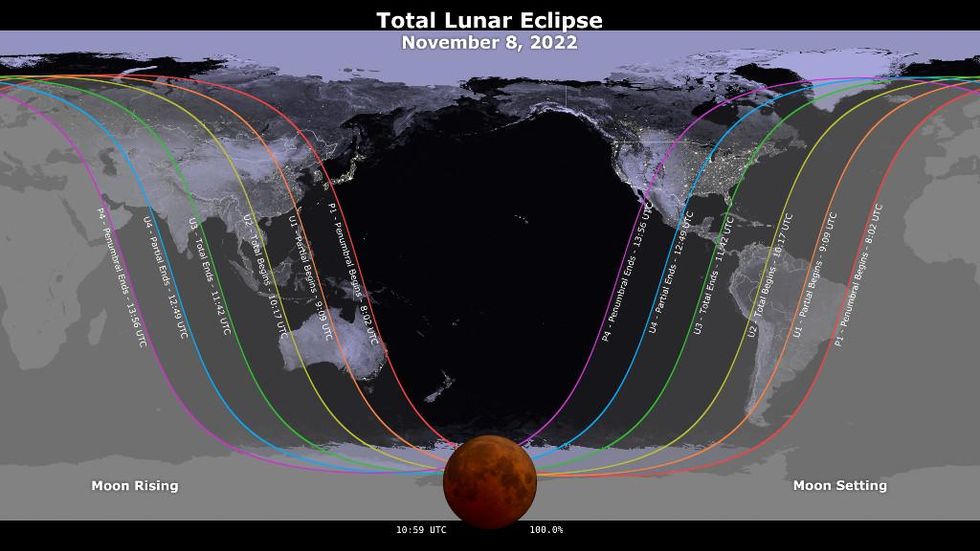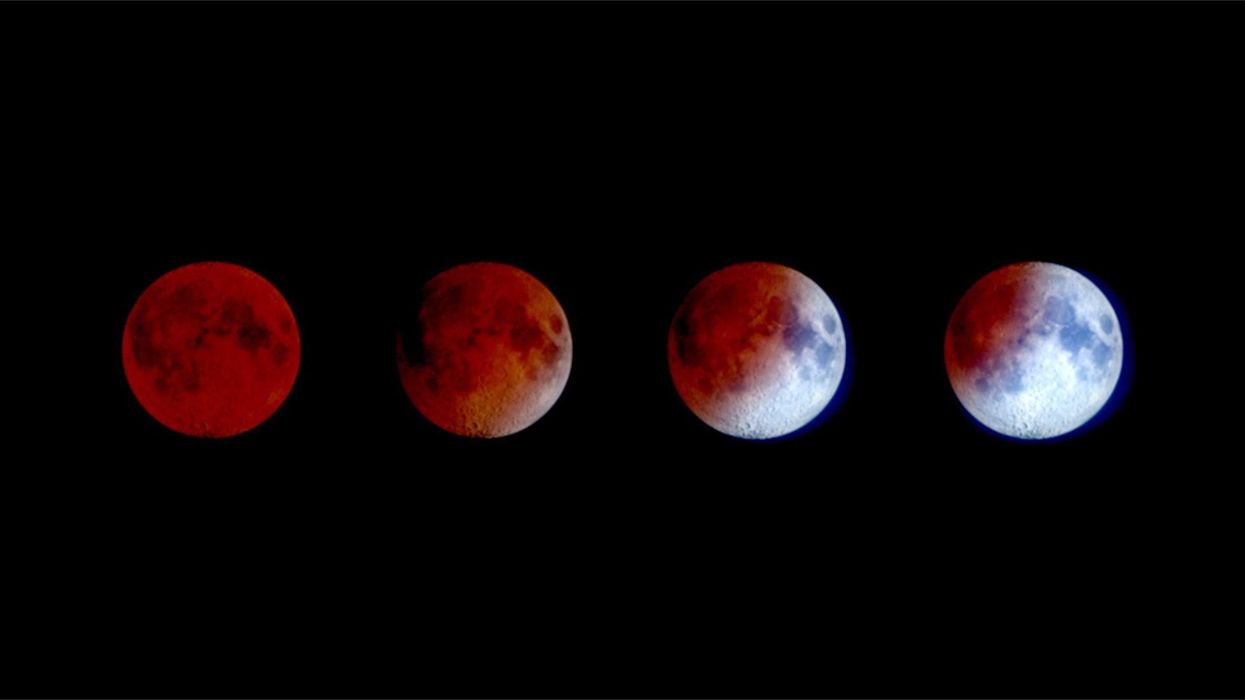Ariana Baio
Nov 07, 2022
What exactly is a 'blood moon' eclipse?
Video
A lunar eclipse blood moon is set to occur early Tuesday morning and it's going to be the last one until 2025, making it a significant event for space enthusiasts.
People in the Americas, the Pacific, Australia, and Asia will be able to see the reddish moon.
This total lunar eclipse blood moon is extra special because it is occurring during November's full moon, also known as the Beaver Moon.
Sign up for our free Indy100 weekly newsletter
For those interested in viewing the blood moon eclipse here's everything you need to know.
What is a blood moon?
The term "blood moon" comes from the red-orange glow cast across the moon during the lunar eclipse.
When a full moon occurs simultaneously as a lunar eclipse, sometimes the way the sun's light hits and bounces off the atmosphere causes the moon to look red.
Not every lunar eclipse is considered a blood moon, as each lunar eclipse is unique.
Blood moons have become popular in recent years because of their mysterious and eerie name.
\u201cOn Tuesday, the Earth, sun and moon will align to create a Blood Moon eclipse. It will be the last total lunar eclipse until 2025. Mark your calendars.\u201d— Today Years Old (@Today Years Old) 1667711563
How long is a blood moon?
The 8 November blood moon eclipse is set to last a little over three hours.
However, the total eclipse portion will only last roughly an hour and a half starting at 5:17 am EST (10:17 am GMT) and ending at 6:42 am EST (11:42 am GMT)
Who can see the blood moon?
The most ideal place to view the total blood moon eclipse will be in northwest North America and northeast Asia.
But most of North America, South America, Southeast Asia, Australia, and central Asia will be able to see parts of the eclipse.

Have your say in our news democracy. Click the upvote icon at the top of the page to help raise this article through the indy100 rankings.
Top 100
The Conversation (0)














